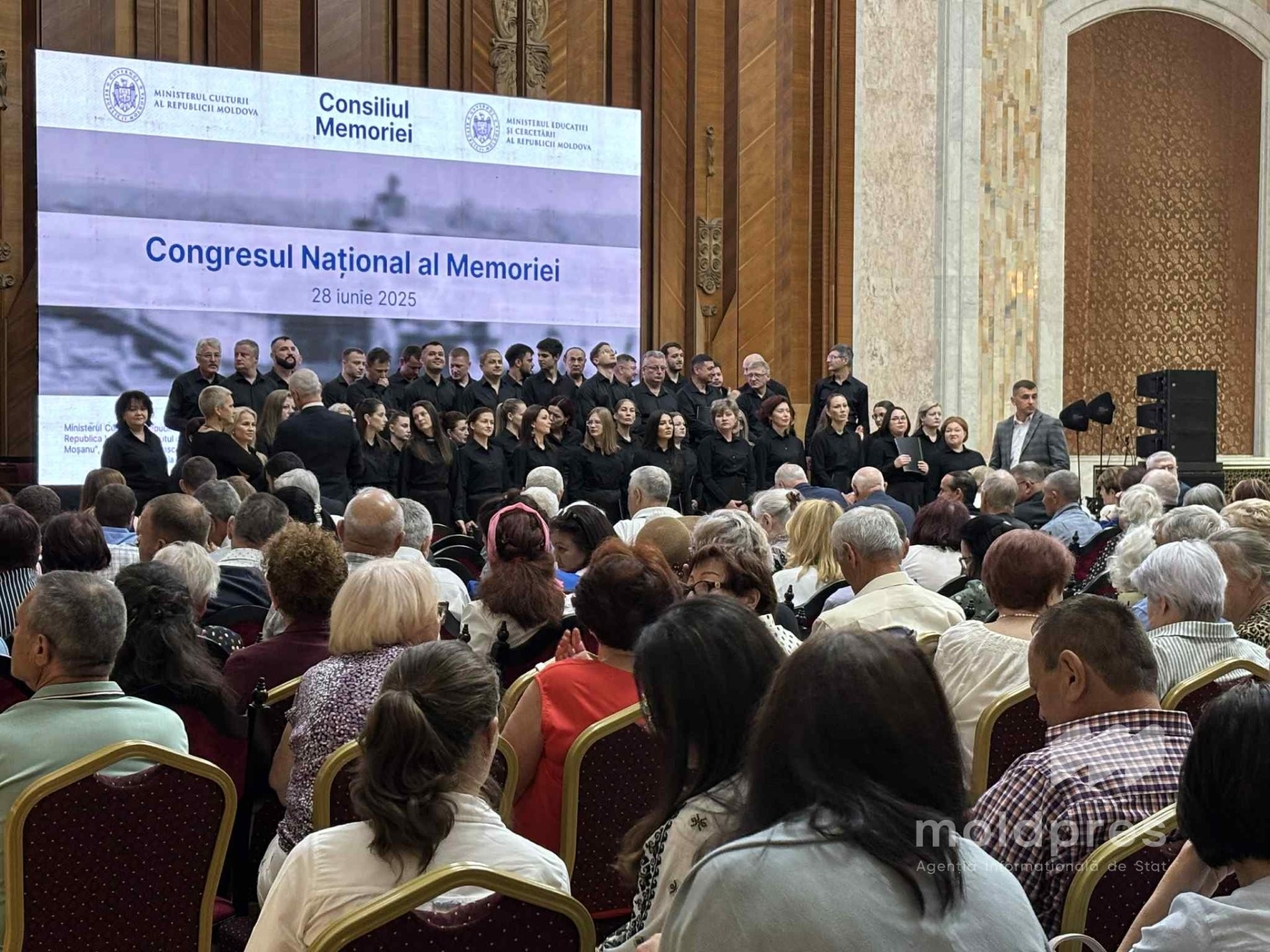
First National Congress of Memory held in Chișinău
First National Congress of Memory is taking place in Chișinău, aiming to become a platform for dialogue between survivors and descendants of victims of deportations and political repressions, and institutional, civic, and academic actors involved in promoting historical memory.
The event is held under the aegis of the Ministry of Culture, the Ministry of Education and Research, the Association of Former Deportees and Political Prisoners of Moldova, and the Institute of History of Moldova State University, in partnership with other institutions.
Participants will include survivors and descendants of deportation and political repression victims, representatives of central and local public authorities, educators, scientific researchers, representatives of museum institutions and nongovernmental organizations, as well as diplomats and members of diplomatic missions accredited in the Republic of Moldova.
"The culture of memory is not just an exercise of the past, but an investment in the identity future of a nation. The culture of memory is the foundation on which the dignity of a people rests. Without it, the national heritage is just mute stone, devoid of soul and continuity," stated Minister of Culture Sergiu Prodan.
The event highlights the importance and timeliness of the Action Plan for 2025-2028 regarding the promotion of the memory culture of victims of repressions committed by the totalitarian-communist regime on the territory of the Republic of Moldova during 1917-1989. The approval of this document by the Government of the Republic of Moldova marks an essential step in consolidating commemorative policies, as well as in supporting the moral and civic rights of deportation victims, political repressions, and their survivors.
"The future of the Republic of Moldova in the great European family can be built through respecting and valuing a culture of memory for all those involved. Without this, none of us, regardless of the language we speak and the ethnicity we represent, will be able to prevent the repetition of historical tragedies, and we will not succeed in advancing on the path towards a civilized world," stated Minister of Education and Research Dan Perciun.
The Congress agenda includes several thematic sections that will address various dimensions of the culture of memory, such as: promoting education and research on crimes committed by the communist regime on the current territory of the Republic of Moldova; recovery, historical valorization, and safeguarding of memorial heritage; the role of institutions in investigating and elucidating the historical phenomenon of the totalitarian-communist regime; and the refinement of the legislative framework concerning victims of the Stalinist regime.
"One of the most important objectives of the event is to highlight the most successful models of defending, promoting, and developing the collective memory related to repressions. At the same time, an analysis of the legislation is necessary to understand to what extent it aligns with international standards in commemorating such atrocities," stated the president of the Association of Former Deportees and Political Prisoners, Alexandru Postica.
The event will conclude with the adoption of a resolution on the development and promotion of the culture of memory in the Republic of Moldova.
The Memory Council was established on February 6, 2025, by the Ministry of Culture and the Ministry of Education and Research, aiming to promote the culture of memory of victims of political repressions from the totalitarian-communist regime period (1917-1990) and support the development of a common European commemorative culture.
Extended paternal leave for fathers with twins or adopted children
Ungheni court cancels results of elections in central Moldova village, mandate of mayor-elect
Medical premiere: 78-year-old woman's life saved by Whipple surgery in Moldova
PHOTO Two new forests take root on banks of Dniester: green hope for Moldova's future
Moldovan civil society's warning: amendments made to industrial emissions law endanger public health, environment
Moldova to receive 30 million euros for renovating 15 model schools
Over 1,500 people affected by Chernobyl nuclear accident to get increased allowances
EBRD to allocate additional grant of 600,000 euros for solid waste project in Moldova
Experience exchange in radioactive waste management
First National Congress of Memory held in Chișinău
Deputy Prime Minister: Reform, resilience, determination – milestones of Moldova's European path
President's message of support for entrepreneurs
Over 100 entrepreneurs receive grants
Moldova's Supreme Court of Justice confirms decision of prosecutors' evaluation commission decision in case of Ghenadie Pirlii
Moldovan PM conveys message on Entrepreneur's Day
Diplomacy through agriculture in central Moldova village; Diplomats accredited in Chisinau pick cherries, taste traditional dishes, native wines
Financial, technical support for 15 social entrepreneurship initiatives from left bank of Dniester River
Moldovan government invests 628 million lei in roads' modernization in 132 settlements through Europe is Close programme
Student at Moldova's Stefan cel Mare Academy: teachers here are people of exceptional value
Moldovan parliament adopts Declaration in support of Ukraine; parliament speaker says parliament of Moldova stands with Ukrainian people
Moldovan president congratulates graduates of Moldovan State University's Law Faculty
President on working visit to Rîșcani district
Moldova aligns its foreign policy with international sanctions: Foreign Affairs Ministry to have decision-making authority
Moldovan state increases monthly allowances for participants Chernobyl accident relief works
Moldovan parliament approves new measures for enhancing road safety in Moldova


